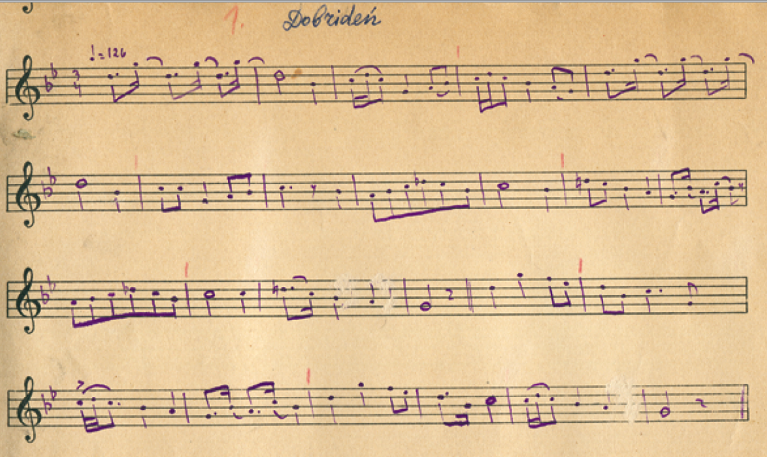
Date
Time
Pacific TImeLocation
New Research on Klezmer Idioms, with Yonatan Malin
Lecture #34 in Joshua Horowitz’s series, The Promiscuous World of Jewish Music
Monday, February 1, 11am Pacific Time/2pm New York/ 7pm UK/ 8pm most of Europe
Length: 1 – 2 hours
Donations to Josh Horowitz are accepted and appreciated, but not required.
Zoom Meeting ID: 967 8901 9038
Password: 156230
There is a Zoom limit of 100 participants. You do not need to register; simply use the sign-in info above.
Professor Yonatan Malin will document klezmer idioms drawing on methodologies from music theory and cognitive linguistics. He will use the well-known “fanfare” or “signal” as a test case, showing how occurrences exhibit family resemblance structures similar to those in linguistic categories. He then will introduce three idioms that are common in the repertoire but have not been formally studied: a descending figure with scale-degrees 7-5-3 in the freygish mode; an opening figure with scale-degrees 3-4-5 and 6-5-4-3, also in freygish; and an idiom that uses b5 in minor as in Naftule Brandwein’s classic tune Fun Tashlach. The talk will be broadly accessible, with theoretical concepts introduced along the way. There will also be a practical component, learning a tune with these idioms by ear.
Yonatan Malin is Associate Professor of Music Theory and Jewish Studies at the University of Colorado Boulder. His research areas include klezmer, Jewish liturgical music, cantillation, and German Lieder. In the spring of 2018, he participated in the inaugural Archive Transformed Residency at CU Boulder together with klezmer fiddler Alicia Svigals and jazz pianist Uli Geissendoerfer, and he has contributed to workshops at Yiddish New York and KlezKanada, as well as the first “Embodied Judaism” symposium, honoring Rabbi Zalman Schachter-Shalomi. He teaches undergraduate and graduate courses at CU Boulder, and his book Songs in Motion: Rhythm and Meter in the German Lied was published in 2010 by Oxford University Press.
